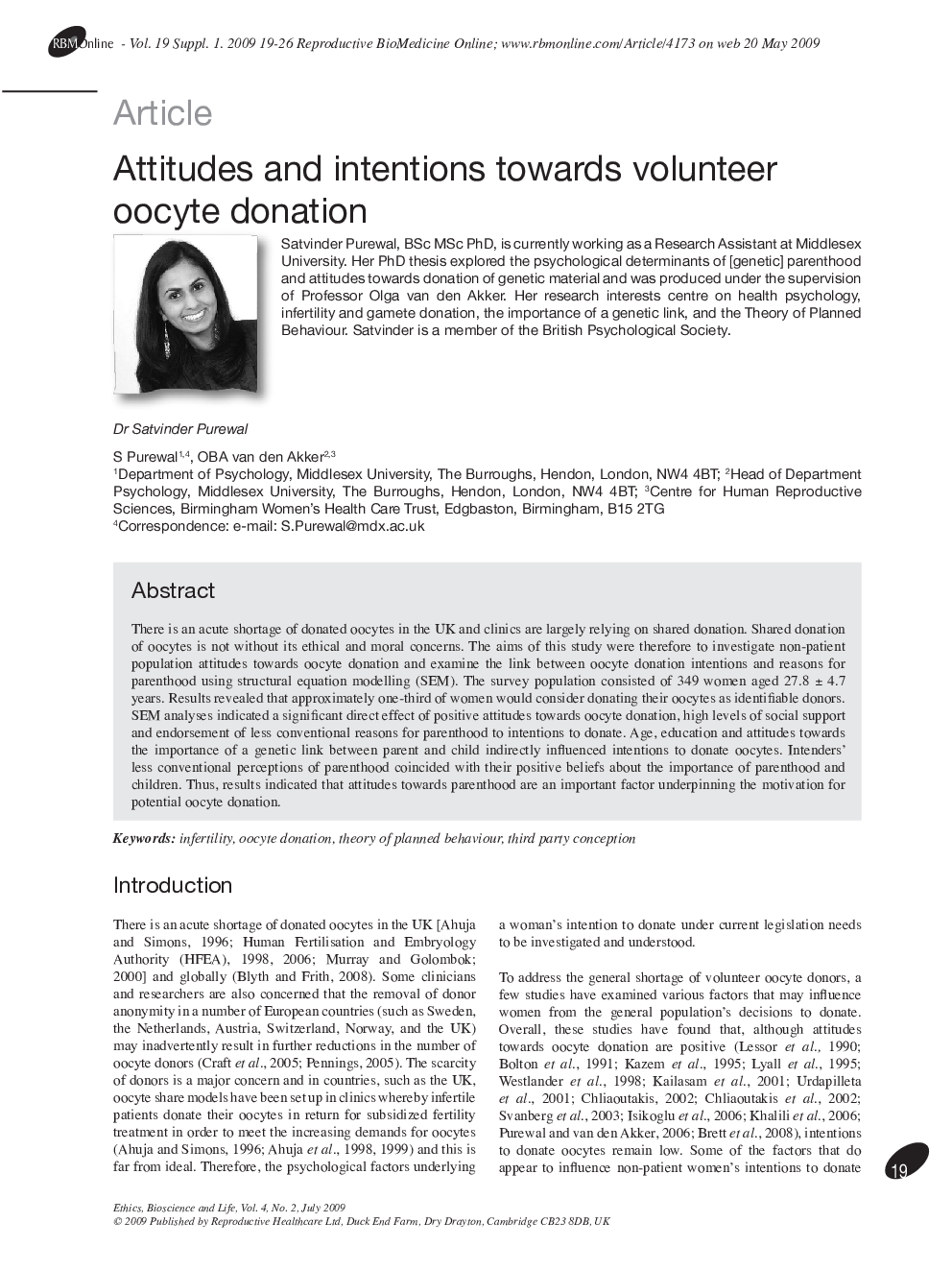| Article ID | Journal | Published Year | Pages | File Type |
|---|---|---|---|---|
| 3971191 | Reproductive BioMedicine Online | 2009 | 8 Pages |
There is an acute shortage of donated oocytes in the UK and clinics are largely relying on shared donation. Shared donation of oocytes is not without its ethical and moral concerns. The aims of this study were therefore to investigate non-patient population attitudes towards oocyte donation and examine the link between oocyte donation intentions and reasons for parenthood using structural equation modelling (SEM). The survey population consisted of 349 women aged 27.8 ± 4.7 years. Results revealed that approximately one-third of women would consider donating their oocytes as identifiable donors. SEM analyses indicated a significant direct effect of positive attitudes towards oocyte donation, high levels of social support and endorsement of less conventional reasons for parenthood to intentions to donate. Age, education and attitudes towards the importance of a genetic link between parent and child indirectly influenced intentions to donate oocytes. Intenders' less conventional perceptions of parenthood coincided with their positive beliefs about the importance of parenthood and children. Thus, results indicated that attitudes towards parenthood are an important factor underpinning the motivation for potential oocyte donation.
